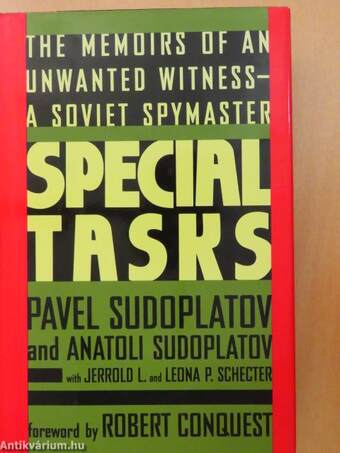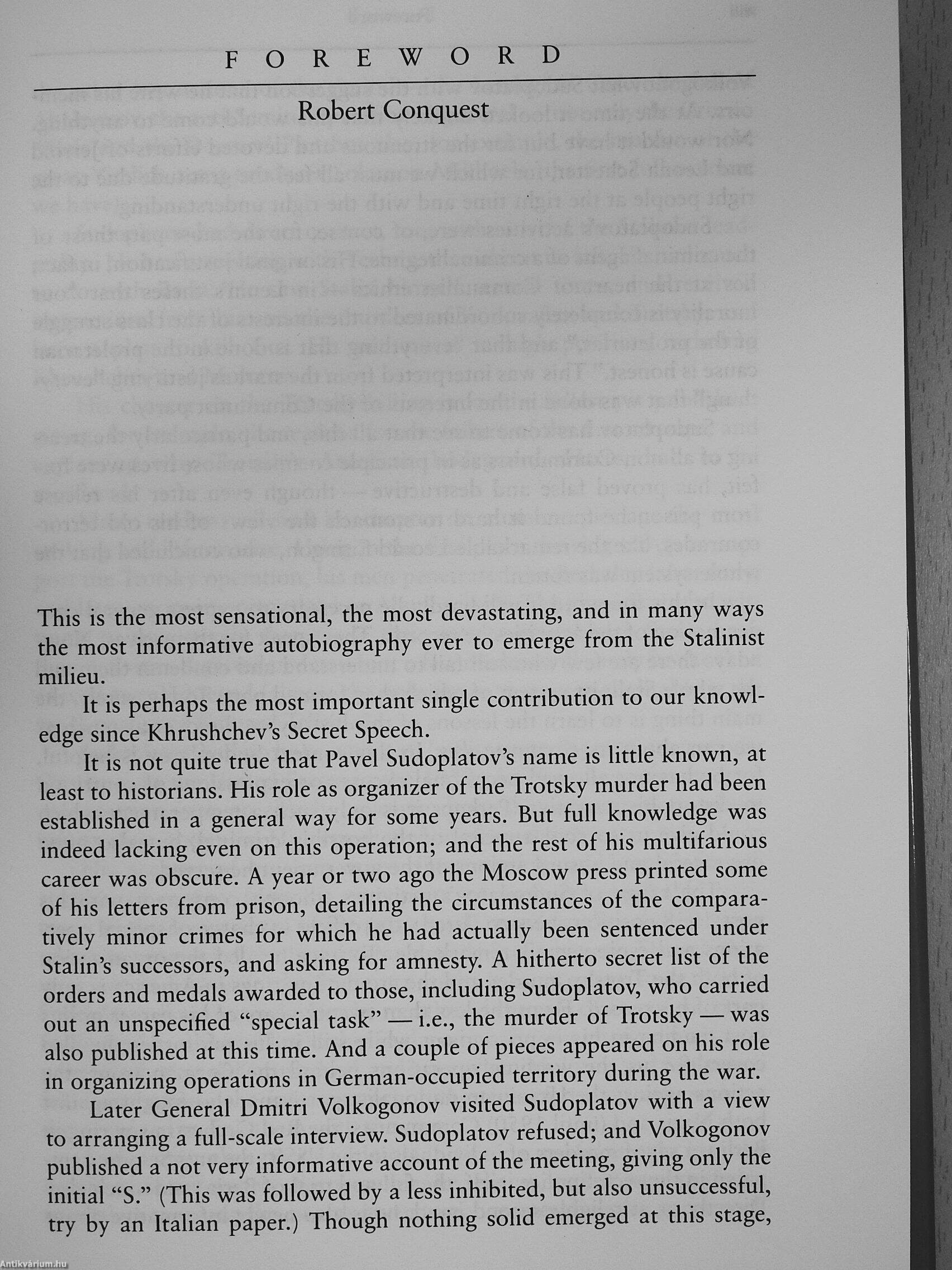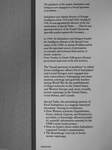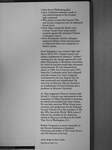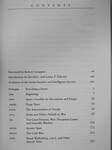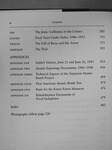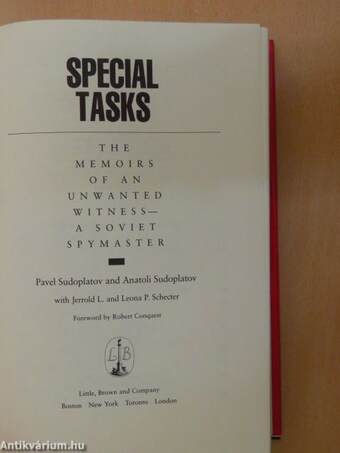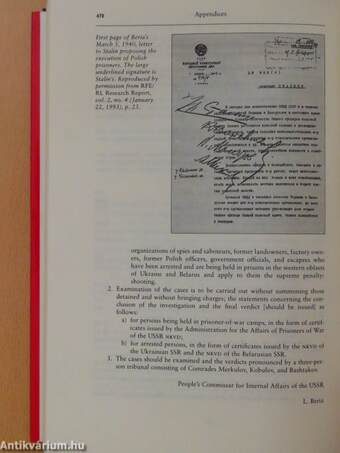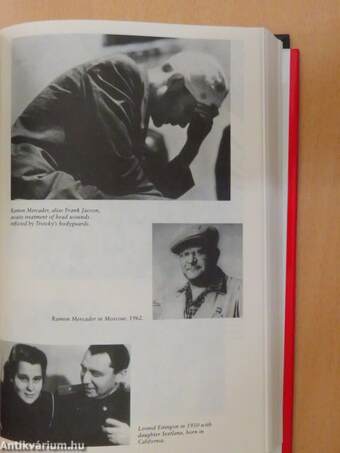1.067.339
kiadvánnyal nyújtjuk Magyarország legnagyobb antikvár könyv-kínálatát

VISSZA
A TETEJÉRE
JAVASLATOKÉszre-
vételek
Special Tasks
The Memoirs Of An Unwanted Witness - A Soviet Spymaster
| Kiadó: | Little, Brown and Company |
|---|---|
| Kiadás helye: | Boston-Toronto |
| Kiadás éve: | |
| Kötés típusa: | Fűzött kemény papírkötés |
| Oldalszám: | 509 oldal |
| Sorozatcím: | |
| Kötetszám: | |
| Nyelv: | Angol |
| Méret: | 24 cm x 16 cm |
| ISBN: | 0-316-77352-2 |
| Megjegyzés: | Fekete-fehér fotókkal. |
naponta értesítjük a beérkező friss
kiadványokról
naponta értesítjük a beérkező friss
kiadványokról
Előszó
TovábbFülszöveg
The gladiators of the system, Sudoplatov and Eitingon were engaged in a broad spectrum of problemsSudoplatov was deputy director of Foreign Intelligence from 1939 until 1942. On July 15, 1941, he was appointed the director of the Administration of Special Tasks Then he was appointed director of the Fourth Directorate (guerrilla warfare against the Germans)
In 1944-46 Sudoplatov and Eitingon headed the Intelligence Bureau of the Special Committee of the USSR on Atomic Problems [which was] the important source of information on scientific and technical elaborations of atomic weapons
From Trotsky, by Dmitri Volkogonov, Russian government supervisor of the KGB Archives.
The "broad spectrum of problems" in which Soviet intelligence officers Pavel Sudoplatov and Leonid Eitingon were engaged was truly extraordinary: kidnapping and assassination; sabotage and guerrilla warfare during World War II; the establishment of illegal networks in the United States and Western Europe; and,... Tovább
Fülszöveg
The gladiators of the system, Sudoplatov and Eitingon were engaged in a broad spectrum of problemsSudoplatov was deputy director of Foreign Intelligence from 1939 until 1942. On July 15, 1941, he was appointed the director of the Administration of Special Tasks Then he was appointed director of the Fourth Directorate (guerrilla warfare against the Germans)
In 1944-46 Sudoplatov and Eitingon headed the Intelligence Bureau of the Special Committee of the USSR on Atomic Problems [which was] the important source of information on scientific and technical elaborations of atomic weapons
From Trotsky, by Dmitri Volkogonov, Russian government supervisor of the KGB Archives.
The "broad spectrum of problems" in which Soviet intelligence officers Pavel Sudoplatov and Leonid Eitingon were engaged was truly extraordinary: kidnapping and assassination; sabotage and guerrilla warfare during World War II; the establishment of illegal networks in the United States and Western Europe; and, most crucially, atomic espionage in the United States, Great Britain, and Canada.
Special Tasks, the astonishing memoir of Pavel Sudoplatov, is a singular historical document. Among its revelations:
• How Western scientists Oppenheimer, Fermi, Szilard, Gamow, and Pontecorvo provided, or knowingly allowed transfer of, scientific information essential to the USSR's atom bomb project.
• How on Stalin's direct orders Sudoplatov organized Trotsky's assassination.
• The Rosenbergs' real role in Soviet atomic espionage.
04942445
• How Raoul Wallenberg died.
• How Sudoplatov planted a mole to feed disinformation to the German high command.
• Why Stalin invented the Doctors' Plot and Zionist conspiracy, how he destroyed Soviet Jewry.
• How Stalin created the Berlin crisis to keep Truman from using nuclear weapons against the imminent Chinese Communist victory.
• How Khrushchev and his colleagues engineered Beria's arrest and execution to whitewash their own complicity in Stalin's crimes.
Pavel Sudoplatov was arrested right after Beria's fall in 1953. Despite torture and solitary confinement he refused to "confess," insisting that the charges against him were either fabrications or distortions of activities for which he had previously been decorated and promoted. He was released from prison in 1968, but it was not until 1992, when the Communist party had collapsed and after twenty-two years of appeals orchestrated by his son Anatoli, that he was exonerated and rehabilitated. He now lives in Moscow. His son Anatoli is an Academician of Social Sciences and a professor at Moscow University.
As Time magazine's Moscow bureau chief Jerrold L. Schecter was instrumental in the acquisition of Nikita Khrushchev's memoirs; he edited and translated the third volume. He was later associate White House press secretary, and spokesman for the National Security Council. He is the coauthor of The Spy Who Saved the World. With Leona P. Schecter he coauthored An American Family in Moscow and Back in the USSR. They live in Washington, D.C.
Robert Conquest is a senior researcher at the Hoover Institution at Stanford University and author of The Great Terror and The Harvest of Sorrow.
Jacket design by Steve Snider PRINTED IN THE U.S.A. Vissza
Témakörök
- Idegennyelv > Idegennyelvű könyvek > Angol > Műszaki
- Idegennyelv > Idegennyelvű könyvek > Angol > Szépirodalom > Regény, novella, elbeszélés
- Idegennyelv > Idegennyelvű könyvek > Angol > Történelem > Európa története > Egyéb
- Szépirodalom > Regény, novella, elbeszélés > Az író származása szerint > Európa > Szovjetunió
- Történelem > Idegennyelvű > Angol
- Történelem > Kontinensek szerint > Európa, európai országok története > Kelet-Európa > Oroszország, Szovjetúnió
- Történelem > Legújabb kor > II. világháború > Hadtörténet
- Történelem > Hadtörténet > Háborúk, csaták
- Műszaki > Idegennyelv > Angol
- Műszaki > Hadászat, hadtörténet
- Szépirodalom > Regény, novella, elbeszélés > Tartalom szerint > Életrajzi regények > Önéletrajzok, naplók, memoárok
Megvásárolható példányok
Nincs megvásárolható példány
A könyv összes megrendelhető példánya elfogyott. Ha kívánja, előjegyezheti a könyvet, és amint a könyv egy újabb példánya elérhető lesz, értesítjük.



